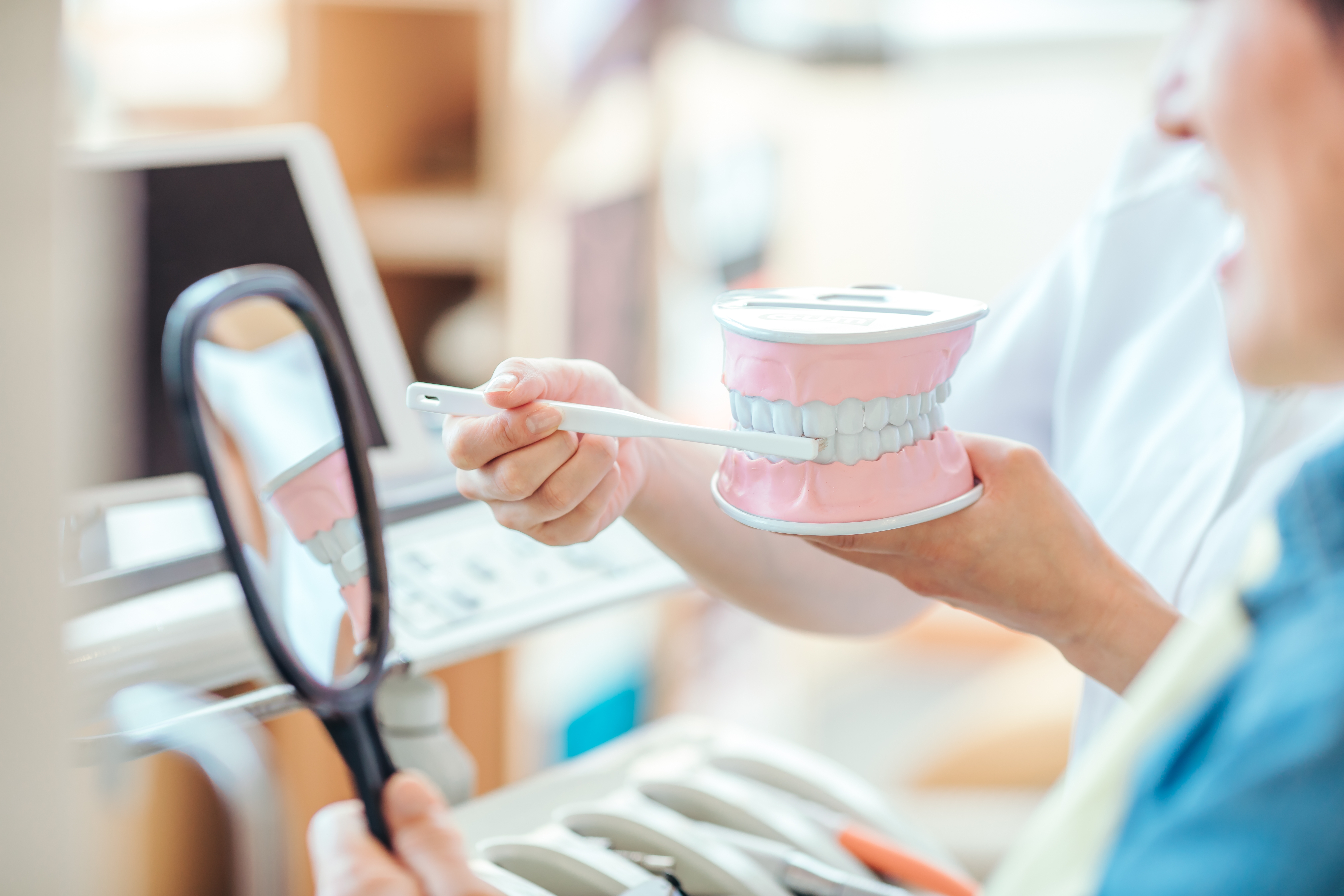
Are you curious to learn more about how to become a dental hygienist? We’ve highlighted key skills for dental hygienists to prioritize in their training.
Educational Requirements for a Dental Hygienist
A solid educational background is required to become a dental hygienist. The educational requirement is an associate’s degree in dental hygiene, which typically takes three years to complete.
The track for an associate’s degree in this field includes general education, sciences such as chemistry, biology, microbiology, anatomy, and physiology, and dentistry, which encompasses periodontology, dental materials, community health dentistry, pharmacology, and pain.
Communication courses are often recommended as electives for students looking to begin building great patient rapport.
In addition, all dental hygienists must be licensed in the state where they work and ensure that their licensure is up to date.
Good-to-Have Skills for a Dental Hygienist
Being an effective dental hygienist requires soft skills that create a stellar patient experience. Building from a core education in dentistry, dental hygienists should consider bolstering their expertise in the following areas.
- Communication: Honing the ability to communicate clearly and effectively with patients is key to delivering concise diagnostics, answering questions, and building rapport. Dental hygienists can assist dentists by conducting pre-exams to assess patient needs and concerns. Learning the right questions to ask and practicing strategic communication is valuable for any dental professional.
- Empathy: Compassion is one of the most important soft skills for a dental hygienist to practice. Every patient deserves to feel a sense of confidence, care, and warmth. Dental offices can cause a lot of anxiety and fear, so having an empathetic outlook is transformative in the overall patient experience.
- Competency and Adaptability: Dentistry is a fast-moving profession. Flexibility is a must for performing your duties in a range of clinical settings. This may include learning new techniques and best practices to enhance the patient experience. Setting a competency standard in your skills means continually practicing, learning, and growing to stay on top of new advancements. In addition, being open to change will benefit your long-term career.
Soft skills benefit the human side of dentistry by creating a positive experience for every patient.
Must-Have Skills for a Dental Hygienist
Lifelong learning is essential for leveling up must-have skills as a dental hygienist. These core abilities will empower your career growth and unlock your professional potential.
- Preventative Care. Dental hygienists are the first resource for preventative care. Mastering techniques, recommendations, and tips to enhance the oral health of every patient is critical. Along with bolstering your continuing education in dentistry, a high attention to detail will benefit your career path in this area.
- Dental Implant Competency. Engaging in evidence-based continuing education on dental implants is a growing need in the industry and is a key focus area for dental hygienists. The science behind dental implants is constantly evolving. Learn more about best practices and real patient studies by joining an implant focus group for CE.
- X-Ray Proficiency. Competency in x-ray machine operations, safety, and recommendations is a core skill for dental hygienists to master. X-ray education should be updated as part of a dental hygienist’s CE to master new machines and stay current on best practices.
- Leadership. Be a leader in your field! Develop skills in leadership to confidently serve your dental community.
When building dental hygienist skills, a dedication to learning is the best way to grow professionally and diversify your expertise. These top must-have skills will help shape your career path as you continue to add value to your practice.
Learn More With Think Dental Learning Institute
Continuing education courses in dental hygienist studies are a great way to enhance your skills, build confidence, and learn new techniques. Whether you’re interested in learning more about how to become a dental hygienist or growing your current skillset, there’s a path for every learner at Think Dental Learning Institute.
We offer online courses, live events, focus groups, and more in an immersive, conversational learning environment.
Reach out to our team to get started.
Image Credit: Shutterstock/buritora

